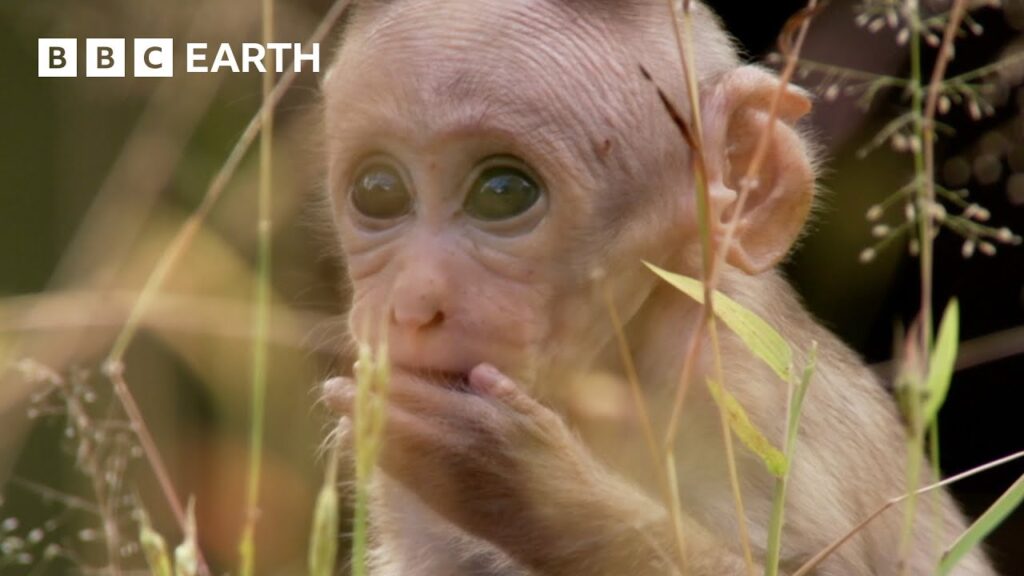
In the unpredictable world of wild macaques, growing up is no easy task. For baby monkeys, survival isn’t just about avoiding predators or finding food—it’s about learning the social skills that hold their troop together. In the Growing Up Wild episode from BBC Earth Kids, one young macaque’s journey takes a dramatic turn when an aggressive elder puts its developing social smarts to the test.
Set in the heart of a macaque troop, the episode introduces us to a playful and curious baby macaque still learning the complex rules of monkey society. Like young children, baby macaques must figure out when to play, when to groom, and when to stay out of trouble. These early lessons in communication, cooperation, and caution are critical for fitting in—and for avoiding danger within the group.
The baby’s day takes a challenging twist when an older macaque lashes out unexpectedly. The elder’s aggression isn’t unusual in macaque society, where dominance hierarchies rule everything from who gets to eat first to who gets the best grooming partners. But for a young monkey, these moments can be terrifying. One wrong move—approaching the wrong individual at the wrong time—can lead to harsh consequences.
This confrontation becomes a pivotal learning moment for the youngster. Instead of fighting back or fleeing recklessly, the baby macaque does something remarkable: it uses body language to show submission, lowering its posture and avoiding direct eye contact. These subtle but powerful signals help reduce tension and defuse the situation. It’s an impressive display of instinct and early emotional intelligence.
As the episode unfolds, viewers see how these early social tests help shape the baby macaque’s development. By observing others, mimicking behaviors, and testing boundaries, the young monkey builds the social toolkit it will need to thrive in adult life. Friends, allies, and grooming partners are all essential to success in macaque society—and the ability to read the room, so to speak, starts in infancy.
What makes this story especially impactful is how relatable it feels. Children watching the episode may see themselves in the baby macaque—navigating rules they’re just beginning to understand, facing challenges they can’t always avoid, and learning the importance of empathy, respect, and timing.
BBC Earth Kids does a brilliant job of presenting complex animal behavior in a way that’s accessible and meaningful to young audiences. The narration balances excitement with education, helping children understand not only what’s happening, but why it matters. The message is clear: even in the animal kingdom, growing up is a journey full of mistakes, learning, and growth.
The baby macaque’s experience with the elder is just one of many steps along its path, but it’s an important one. In a world where a single interaction can change your status, learning how to respond with patience and awareness is a key to survival—and a lesson that resonates far beyond the jungle.


